 So you’re interested in Deaf culture and want to connect with the larger community. Great! But how do you go about taking that first step?
So you’re interested in Deaf culture and want to connect with the larger community. Great! But how do you go about taking that first step?
Everyone has been in a situation where they feel completely out of place. Maybe it was the first day in a new school or at a new job. These moments, as uncomfortable as they might seem, often provide us opportunities for personal growth. For hearing people, the thought of entering a Deaf space — a place where all conversations happen in American Sign Language— can be a little intimidating. Ultimately, however, stepping outside of ones’ comfort zone is a priceless experience that has the potential to open our minds to a whole new reality.
If you are nervous or shy, just take it slow. A good first step is to get involved in an online community where Deaf people dictate the conversation. This is an excellent way to “get to know” people without feeling too much social pressure. The way you connect with others will depend on your personal and professional interests. Try searching the #Deaf hashtag on Twitter, or find an active community on Facebook or LinkedIn. Follow the National Association of the Deaf (NAD), the Registry of Interpreters for the Deaf (RID), World Federation of the Deaf, Deaf Nation, and Deaf World as a place to get started.
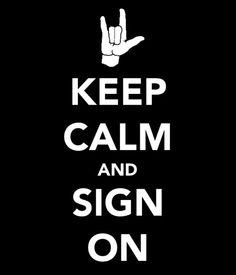 The internet has given deaf people a public voice like never before! From online discussions you can get a feel for the tones people use to communicate with each other, the types of things they find funny, and what issues they find important. Like and share content created by deaf individuals to amplify their voices, and don’t be afraid to follow new people and jump in on discussions if you have something to contribute. Help bring attention to issues that are “hot topics” or in need of support. Pay attention to what is being discussed, what rumors are going around, and what events are coming up in your area.
The internet has given deaf people a public voice like never before! From online discussions you can get a feel for the tones people use to communicate with each other, the types of things they find funny, and what issues they find important. Like and share content created by deaf individuals to amplify their voices, and don’t be afraid to follow new people and jump in on discussions if you have something to contribute. Help bring attention to issues that are “hot topics” or in need of support. Pay attention to what is being discussed, what rumors are going around, and what events are coming up in your area.
Be sure to add some Deaf-created content to your RSS Feed or Blogroll to get educated while exploring the many dimensions of Deaf culture. Follow news and views from d/Deaf/ HoH activist Rikki Poytner, watch the hilarious “Don’t Shoot the Messenger,” or explore any number of other YouTube channels for videos that help bridge the culture gap. “Fridays” is a new ASL web series about two deaf best friends just trying to figure out life and relationships, it’s written and produced by Shoshannah Stern and Josh Feldman. For cute and totally relevant comics about Deaf and CODA life, follow “That Deaf Guy” Matt Daigle.
Getting involved with the online community will make it easier to take the next step, which is to get out and meet new people! Some people find that using Meetup, a site and mobile app that allows users to form groups and arrange meetings, offers a comfortable transition between online discussion and in-person engagement. Look for a Meetup group in your area and, if there isn’t one, create a group! You never know, there might be other likeminded individuals who are looking for the exact same thing.
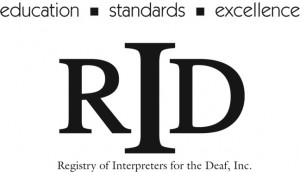 If meeting people off the internet isn’t up your alley, there are plenty of other options to connect with the Deaf community. Try Google searching for a Deaf coffee chat or Deaf club in your city. If you live near Rochester, NY, check out the National Technical Institute of the Deaf (NTID) campus. Or, if you live near Washington, DC, look for events at Gallaudet University. Don’t be afraid to reach out to local deaf organizations or the local interpreter training program for more information, you will find that most people are happy to help.
If meeting people off the internet isn’t up your alley, there are plenty of other options to connect with the Deaf community. Try Google searching for a Deaf coffee chat or Deaf club in your city. If you live near Rochester, NY, check out the National Technical Institute of the Deaf (NTID) campus. Or, if you live near Washington, DC, look for events at Gallaudet University. Don’t be afraid to reach out to local deaf organizations or the local interpreter training program for more information, you will find that most people are happy to help.
Attending Deaf Expos is an awesome way to meet new people and immerse yourself to an environment where ASL is the primary language. These expos are growing in popularity, making their way from major cities to more regional venues. Learn about all the services, events, and cool things happening within the Deaf community. Another option is to find out if there is an ASL Slam or Deaf cultural events coming up nearby. Maybe there’s a monthly Deaf coffee meetup, or another type of casual social meeting that is open to the public. There are deaf-owned and operated restaurants popping up in major North American cities, such as Mozzeria in San Francisco, Signs in Toronto, and DeaFined in Vancouver where you communicate with mostly deaf waitstaff. Remember that it’s perfectly natural to be nervous the first time you do something, but that should never prevent you from seizing the opportunity to expand your horizons.
 If you are training to be an ASL interpreter, sign up with your local RID chapter. It helps to not only be connected with the Deaf community, but also to participate in the Interpreting community. Learn about upcoming workshops and events. Meet other interpreters from all backgrounds, expertise, and experience levels. If anyone understands how scary it can be to push yourself outside your comfort zone, it’s others who work in this field.
If you are training to be an ASL interpreter, sign up with your local RID chapter. It helps to not only be connected with the Deaf community, but also to participate in the Interpreting community. Learn about upcoming workshops and events. Meet other interpreters from all backgrounds, expertise, and experience levels. If anyone understands how scary it can be to push yourself outside your comfort zone, it’s others who work in this field.
 If you want to get involved with the Deaf community, there is no reason not to. Deaf people spend their lives marginalized by the hearing majority culture, so taking the initiative to form a connection is generally appreciated. Start by practicing your ASL and learning about the different methods of deaf-hearing communication, which will lessen any anxiety about engaging new people. Educate yourself on Deaf issues, understand what it means to be an ally, and attend an upcoming event in your area. Then just find a friendly face in the room, and strike up a conversation!
If you want to get involved with the Deaf community, there is no reason not to. Deaf people spend their lives marginalized by the hearing majority culture, so taking the initiative to form a connection is generally appreciated. Start by practicing your ASL and learning about the different methods of deaf-hearing communication, which will lessen any anxiety about engaging new people. Educate yourself on Deaf issues, understand what it means to be an ally, and attend an upcoming event in your area. Then just find a friendly face in the room, and strike up a conversation!
If you are in an interpreter training program and looking for ways to get involved with the Deaf community, consider mentoring through LC Interpreting Services. Our mentorship programs are individually designed to offer exactly what you need to feel confident as an intepreter, from strengthening skills to providing guidance, and everything in between!
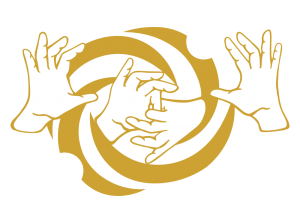



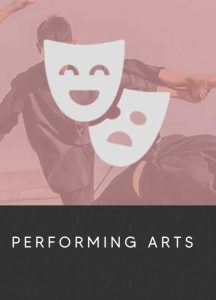
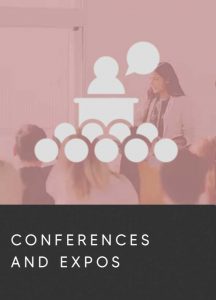
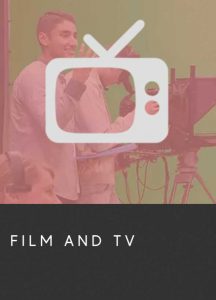

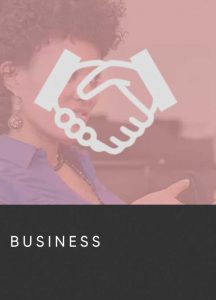



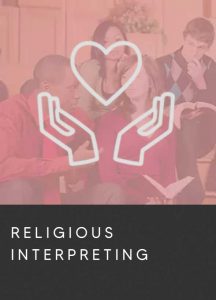
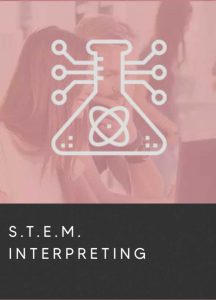
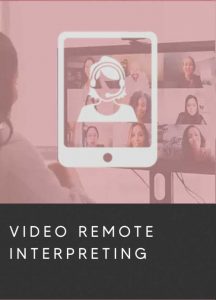
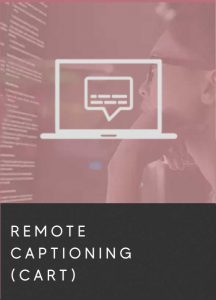

 So you’re interested in Deaf culture and want to connect with the larger community. Great! But how do you go about taking that first step?
So you’re interested in Deaf culture and want to connect with the larger community. Great! But how do you go about taking that first step? The internet has given deaf people a public voice like never before! From online discussions you can get a feel for the tones people use to communicate with each other, the types of things they find funny, and what issues they find important. Like and share content created by deaf individuals to amplify their voices, and don’t be afraid to follow new people and jump in on discussions if you have something to contribute. Help bring attention to issues that are “hot topics” or in need of support. Pay attention to what is being discussed, what rumors are going around, and what events are coming up in your area.
The internet has given deaf people a public voice like never before! From online discussions you can get a feel for the tones people use to communicate with each other, the types of things they find funny, and what issues they find important. Like and share content created by deaf individuals to amplify their voices, and don’t be afraid to follow new people and jump in on discussions if you have something to contribute. Help bring attention to issues that are “hot topics” or in need of support. Pay attention to what is being discussed, what rumors are going around, and what events are coming up in your area. If meeting people off the internet isn’t up your alley, there are plenty of other options to connect with the Deaf community. Try Google searching for a Deaf coffee chat or Deaf club in your city. If you live near Rochester, NY, check out the National Technical Institute of the Deaf (NTID) campus. Or, if you live near Washington, DC, look for events at Gallaudet University. Don’t be afraid to reach out to local deaf organizations or the local interpreter training program for more information, you will find that most people are happy to help.
If meeting people off the internet isn’t up your alley, there are plenty of other options to connect with the Deaf community. Try Google searching for a Deaf coffee chat or Deaf club in your city. If you live near Rochester, NY, check out the National Technical Institute of the Deaf (NTID) campus. Or, if you live near Washington, DC, look for events at Gallaudet University. Don’t be afraid to reach out to local deaf organizations or the local interpreter training program for more information, you will find that most people are happy to help. If you are training to be an ASL interpreter, sign up with your local RID chapter. It helps to not only be connected with the Deaf community, but also to participate in the Interpreting community. Learn about upcoming workshops and events. Meet other interpreters from all backgrounds, expertise, and experience levels. If anyone understands how scary it can be to push yourself outside your comfort zone, it’s others who work in this field.
If you are training to be an ASL interpreter, sign up with your local RID chapter. It helps to not only be connected with the Deaf community, but also to participate in the Interpreting community. Learn about upcoming workshops and events. Meet other interpreters from all backgrounds, expertise, and experience levels. If anyone understands how scary it can be to push yourself outside your comfort zone, it’s others who work in this field. If you want to get involved with the Deaf community, there is no reason not to. Deaf people spend their lives marginalized by the hearing majority culture, so taking the initiative to form a connection is generally appreciated. Start by practicing your ASL and learning about the different methods of deaf-hearing communication, which will lessen any anxiety about engaging new people. Educate yourself on Deaf issues, understand what it means to be an ally, and attend an upcoming event in your area. Then just find a friendly face in the room, and strike up a conversation!
If you want to get involved with the Deaf community, there is no reason not to. Deaf people spend their lives marginalized by the hearing majority culture, so taking the initiative to form a connection is generally appreciated. Start by practicing your ASL and learning about the different methods of deaf-hearing communication, which will lessen any anxiety about engaging new people. Educate yourself on Deaf issues, understand what it means to be an ally, and attend an upcoming event in your area. Then just find a friendly face in the room, and strike up a conversation! Last year, audiences watched in disbelief as the South African sign language interpreter for Nelson Mandela’s memorial service earned the nickname “the fake interpreter.” Insulted, but not entirely surprised, the global deaf community used this public example to bring attention to an unfortunately common problem. The agencies which provide interpreters, even for large televised events, aren’t always looking out for the best interest of the communities they serve.
Last year, audiences watched in disbelief as the South African sign language interpreter for Nelson Mandela’s memorial service earned the nickname “the fake interpreter.” Insulted, but not entirely surprised, the global deaf community used this public example to bring attention to an unfortunately common problem. The agencies which provide interpreters, even for large televised events, aren’t always looking out for the best interest of the communities they serve. When interpreting agencies assign unqualified interpreters to jobs, they are denying equal access– it happens at hospitals, police stations, and court rooms alike. From the very start of our careers, interpreters should aware that these agencies are unethical, and that it is our professional responsibility to ensure access for the deaf is provided.
When interpreting agencies assign unqualified interpreters to jobs, they are denying equal access– it happens at hospitals, police stations, and court rooms alike. From the very start of our careers, interpreters should aware that these agencies are unethical, and that it is our professional responsibility to ensure access for the deaf is provided.
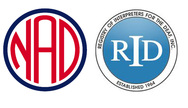 Research agencies to ensure they adhere to RID/NAD standards. The Registry of Interpreters for the Deaf (RID) is a professional organization which strives to provide consistent and ethical sign language interpreters. The National Association of the Deaf (NAD) is a civil rights organization by and for deaf people, representing the interest of deaf and hard of hearing individuals across the United States. Together RID and NAD have developed a
Research agencies to ensure they adhere to RID/NAD standards. The Registry of Interpreters for the Deaf (RID) is a professional organization which strives to provide consistent and ethical sign language interpreters. The National Association of the Deaf (NAD) is a civil rights organization by and for deaf people, representing the interest of deaf and hard of hearing individuals across the United States. Together RID and NAD have developed a 
 Before you sign a contract with any agency, be sure you read it very thoroughly and that you agree to the terms. If you find any questionable items in the contract, bring it back to the agency to discuss how your needs can be met. Look for the following items: a cancellation policy that ensures pay for the interpreter if the assignment is cancelled without 24-48 hours notice; a policy that states payment will be made within 14-45 days of an assignment; and pay that follows the cost of living standards for your area. Whether you live in a city or rural area has a big impact on your income. Learn the standard rates for non-certified and certified ASL interpreters in your city, and seek out an agency that provides all interpreters a fair hourly wage.
Before you sign a contract with any agency, be sure you read it very thoroughly and that you agree to the terms. If you find any questionable items in the contract, bring it back to the agency to discuss how your needs can be met. Look for the following items: a cancellation policy that ensures pay for the interpreter if the assignment is cancelled without 24-48 hours notice; a policy that states payment will be made within 14-45 days of an assignment; and pay that follows the cost of living standards for your area. Whether you live in a city or rural area has a big impact on your income. Learn the standard rates for non-certified and certified ASL interpreters in your city, and seek out an agency that provides all interpreters a fair hourly wage.





